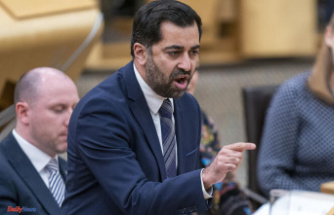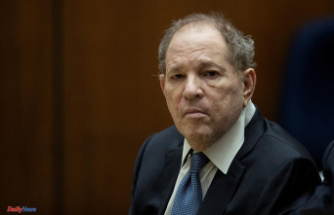The world's most populous country inaugurates the new seat of parliament on Sunday, one of the major projects implemented by Hindu nationalist Prime Minister Narendra Modi to reshape the capital of India, but opposition parties denounce a " grave offense" to democracy.
Mr Modi has long sought to eliminate the remnants of British rule. The new hexagonal building he wanted adjoins the one built in the colonial era by the British architects Edwin Lutyens and Herbert Baker, which he will now replace.
The powerful Indian Minister of the Interior, Amit Shah, a key figure in Mr. Modi's entourage, sees in the new building the symbol of a "self-sufficient India and a pole for the realization of the hopes and aspirations of all Indians".
Its detractors, on the other hand, deplore that the project has been instrumentalized for partisan ends, with Mr. Modi who will preside over its inauguration on Sunday rather than the head of state, Droupadi Murmu.
The main opposition Congress and 19 other political parties announced on Wednesday that they would boycott the ceremony.
"History will not only remember you for building a fine work," said Congress spokesman Pawan Khera, "History will remember if you ensured that the spirit of the place lives on .History will remember you for that, but you muzzle the voices in Parliament."
Everyone agrees that the current Parliament is cramped, that its facilities are obsolete, that the number of offices and committee rooms is insufficient and that they needed to be changed.
But the new headquarters, which would have cost around $145 million, is part of Mr Modi's ambitious program to refurbish or replace British-era government buildings, including the prime minister's residence, in the center of New Delhi.
Dubbed "Central Vista," the program quickly came under fire for its lack of transparency, high costs, and alleged violations of local environmental and land laws.
The new lower house has been endowed with 888 seats, suggesting that the authorities plan to significantly increase the number of its members currently set at a maximum of 550.
The Bharatiya Janata Party (BJP), party of Mr. Modi could benefit from this: if the number of MPs were increased according to the figures of the 2011 census, the north and center of the country, densely populated and strongholds of the BJP, would be much better represented than the more developed and wealthier South India, where the BJP remains relatively weaker.
The irony with this inauguration is that Mr Modi's critics accuse him and his party - after two successive election victories and an already fierce campaign for the next ones in 2024 - of undermining electoral politics itself. .
"Under Modi, the deep institutional functioning of democracy, of which parliament is the best representative, has in fact collapsed," said Hartosh Singh Bal, editor of Indian news magazine The Caravan.
“The whole tradition of debate, dissent, questioning and argumentation, which is the basis of a coherent policy, has completely disappeared or been destroyed,” he underlines.
Opponents accuse the BJP of stifling debate in parliament, deploying tax raids, federal investigations and lawsuits to weaken key opposition figures.
Parliament experienced disrupted sittings in February following the government's blocking of requests from the opposition and Congress leader Rahul Gandhi for an investigation into possible links between Mr Modi and tycoon Gautam Adani, whose conglomerate has been accused of fraud.
The Adani Empire denies these accusations.
The following month, Rahul Gandhi was banned from the Indian Parliament on the basis of his prison sentence for defamation, following a remark made during the 2019 election campaign in the state of Gujarat (west), whose Prime Minister originated.
"India without Congress" was the campaign slogan of the BJP brought to power in 2014, recalls the spokesperson for the Congress.
"They want democracy without opposition", he added, "how can there be democracy without opposition?".
For his part, Amit Malviya, leading the BJP's campaign on social media, intends to place the boycott of the inauguration of the new parliamentary seat in the context of colonialism, drawing a parallel with that of the current seat in 1927 by the Viceroy Lord Irwin, in the presence of Motilal Nehru, the great-great-grandfather of Rahul Gandhi.
"Congress, which then had no qualms about genuflecting to the British, now has a problem attending the inauguration, even if the person leading the ceremony is a democratically elected Prime Minister" , he told AFP, "how do you explain Congress's loyalty to the British and its contempt for the Indian people?"
05/26/2023 16:25:43 - New Delhi (AFP) - © 2023 AFP












